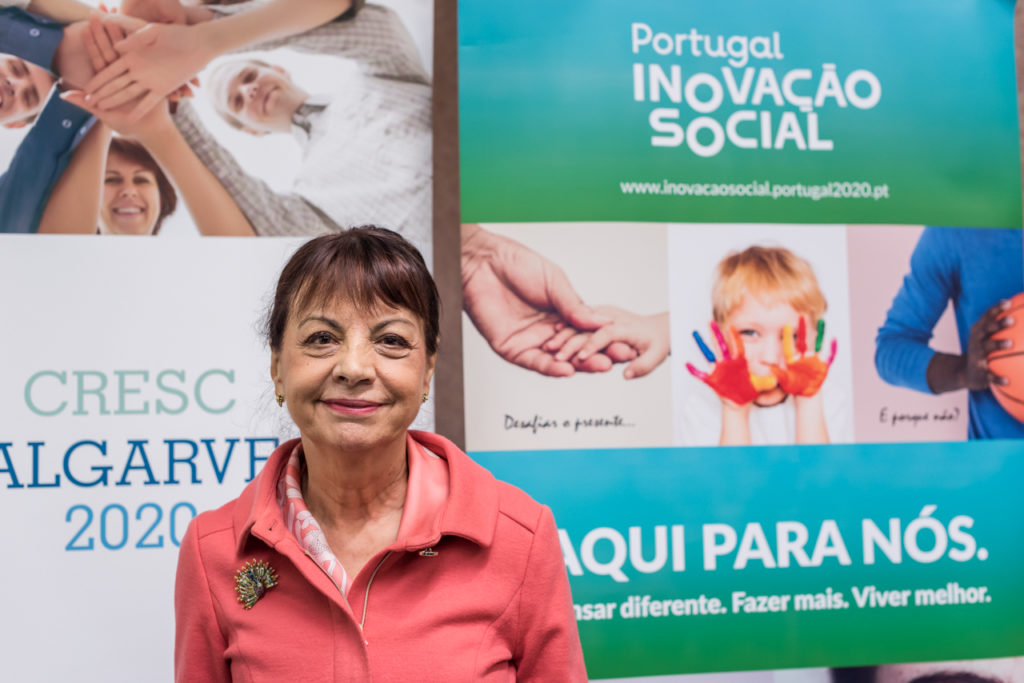 The Algarve was invited to think “outside the box” and to present projects that promote responses to social problems facing our society. The Portugal Social Innovation program arrived in the Algarve this Wednesday and has a budget of 4,8 million euros, to support initiatives promoted by IPSS, but also by associations, municipalities and companies.
The Algarve was invited to think “outside the box” and to present projects that promote responses to social problems facing our society. The Portugal Social Innovation program arrived in the Algarve this Wednesday and has a budget of 4,8 million euros, to support initiatives promoted by IPSS, but also by associations, municipalities and companies.
The launch of this initiative in the Algarve was made official in a ceremony that took place today, April 11, at the headquarters of the Regional Coordination and Development Commission (CCDR) of the Algarve, in Faro. Portugal Inovação Social arrived in the region after having already been launched in the North, Center and Alentejo regions.
For those responsible for the program, all ideas capable of complementing the existing response to the scourges that promote inequalities and social exclusion, through an innovative approach to the problems, are welcome.
«This social innovation plan aims to find new solutions to problems that are increasingly important in our society and also in the Algarve: the aging of the population, the loneliness that this leads to, school failure or learning new technologies, which allow for better academic performance and future employability, in particular for long-term unemployed», summarized, on the sidelines of the session, the Minister of the Presidency and Administrative Modernization Maria Manuel Leitão Marques, who was in Faro to chair the session.
The person responsible for the ministry that oversees the Portugal Inovação Social Mission Structure added that “innovative solutions have been supported, developed with civil society agents, such as associations, companies, IPPS”.
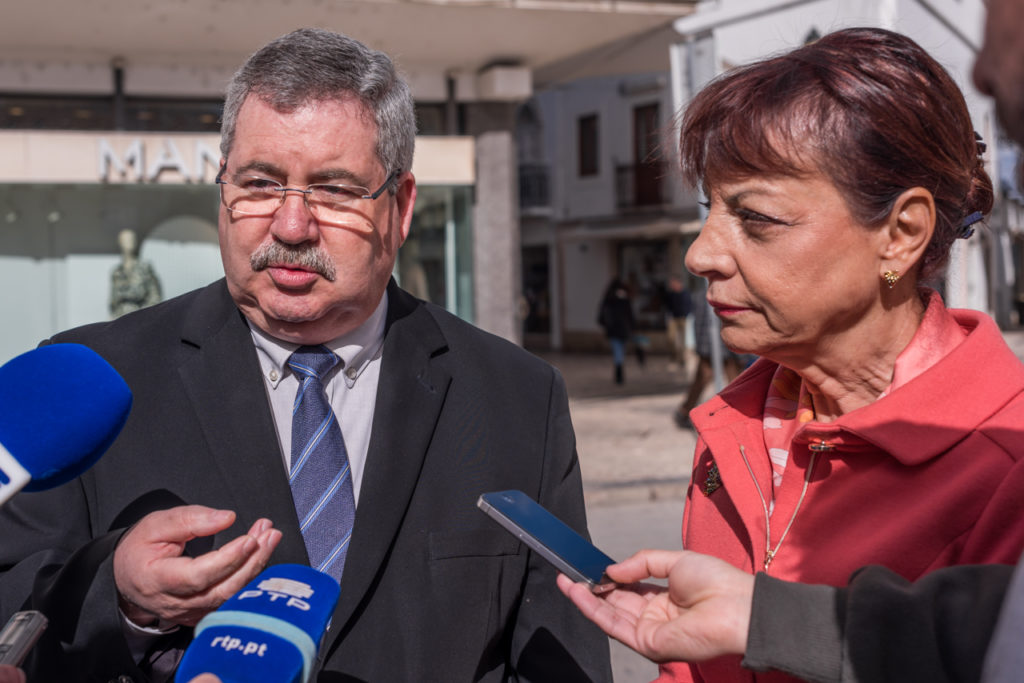
The Algarve's public and private organizations will be able to start applying soon. The opening of the first notice is scheduled for May 31st.
This competition, with an endowment of around 2 million euros, will be opened in the Partnerships for Innovation aspect, one of the two main ones in this program. Here, any social economy organization can apply, which will have to find a willing social investor, whether a public or private entity, to advance 30% of the project's global value. The remaining 70% are financed by Portugal Inovação Social.
The other main aspect of the program is the so-called Social Impact Bonds. In this case, only projects “that produce measurable social results” are eligible, explained Filipe Almeida, president of Portugal Inovação Social.
This is essential because the reimbursement of the investment, which will have to be done, necessarily, by a private partner, depends on achieving the objectives. If the project has the results expected by its promoters, the financing is full.
For this aspect, the CCDR of the Algarve, which manages the funds destined for this program, plans to open a notice in October, with a budget allocation of one million euros.
“We still don't have, at this moment, a forecast of what the demand will be, but, judging by the participation we had today in the presentation, the interest is enormous. We are very optimistic about the capacity to make this money available and that it is effectively used for the purposes that are programmed», as revealed Francisco Serra, president of the CCDR of the Algarve, in statements to journalists.
This official believes that "in September, people will know if the applications have been approved and will be able to start working."
As for an increase in the global amount, it will depend, to a large extent, on the number and quality of applications. "If there is sufficient demand and the projects are considered of great interest, it is possible to reinforce the allocation, with the authorization of the management entity", added Francisco Serra.
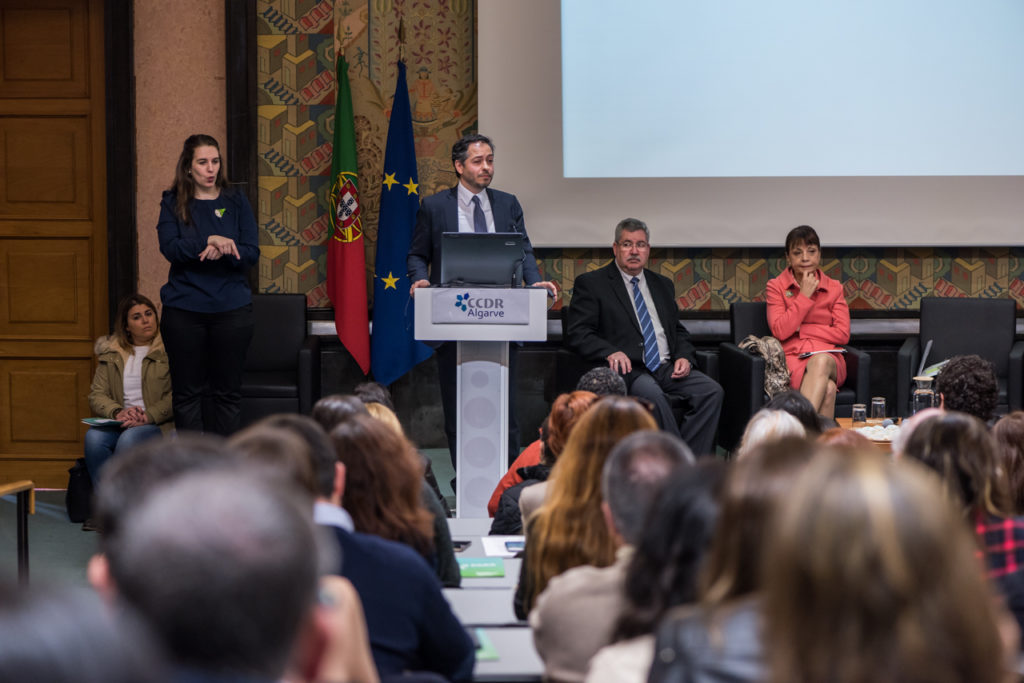
The two strands for which tenders are already planned are aimed at projects in an already high state of maturity. But that doesn't mean that good ideas have to stay by the wayside, just because they aren't structured yet or because the organizations that want to promote them don't have the necessary knowledge to translate them into a candidacy.
“One of the priorities we have, which has worked very well in other parts of the country, is to organize an incubator that will allow us to accelerate these projects and help them at an early stage. We are doing this with the collaboration of municipalities and universities, as it is important to bring more knowledge to social innovation. This helps institutions to organize and launch their projects», announced Maria Leitão Marques.
«Those who innovate always take risks. If you don't risk it, it's because you innovate little. It is very important to help these innovative projects to overcome the first difficulties», he explained.
This incubator is part of Training for Social Innovation, aimed at projects that are at a preliminary stage, which are based, above all, on «the development of management skills» for the teams that are developing them, according to Filipe Almeida.
At this time, 137 projects have been presented across the country, 99 of which are training projects, with a value of 3,5 million euros. In the field of Innovation Partnerships, 35 projects have been approved, with a support of 7 million euros and three of Social Impact Titles, with 1,5 million euros associated.
Two of the ideas already underway were presented at the launch session of the program in the Algarve. Both have national coverage and are linked to the field of education, albeit with a very different approach.
“Apps for Good”, which has even arrived in the Algarve, is the adaptation to Portugal of a program that is already taking place in several countries. This project challenges students and teachers from schools from different cycles – despite focusing more on students between the 5th and 12th grade – to create applications that solve problems that the teams that are created identify.
So far, ideas have emerged ranging from study support programs for colleagues who have greater difficulties, but also aimed at community integration, in this case Muslim students from a school in Palmela, who have created an application that explains their culture.
In the Algarve, the project is being implemented in João de Deus school clusters (Faro), Francisco Fernandes Lopes (Olhão), Poet António Aleixo (Portimão) and Vila Real de Santo António.
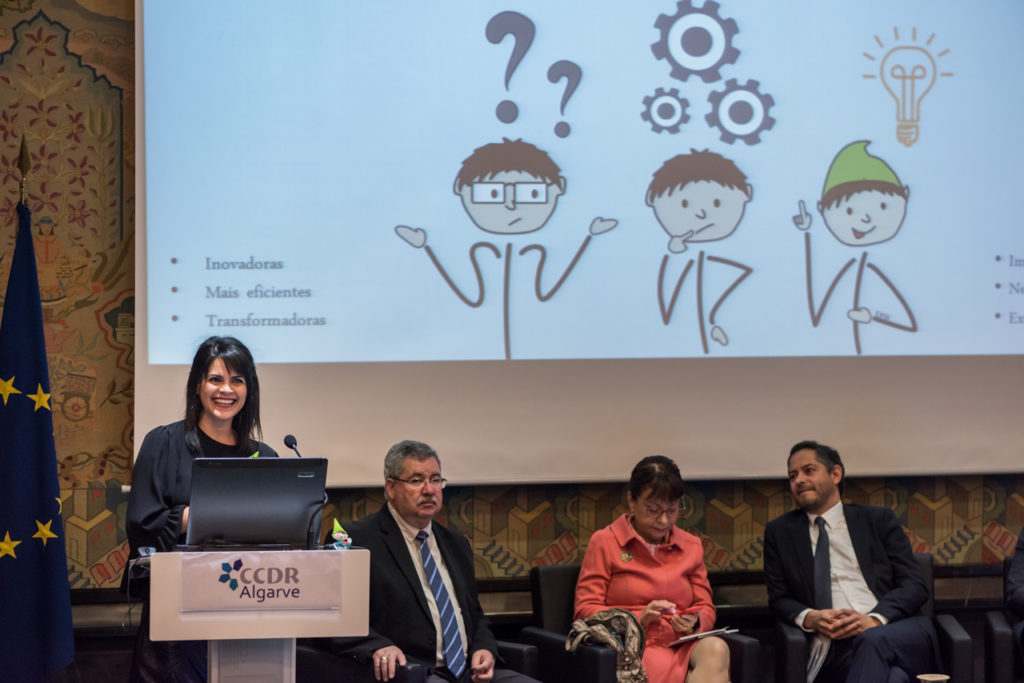
The “Ekui” project, on the other hand, aims at the inclusion and training of those who, for various reasons, have difficulties in communicating. And we are not just talking about people with disabilities, but also those who are victims of illness or accident (such as a stroke) or even those who cannot read or write.
The project proposes a literacy methodology based not only on writing, but also on sign language and Braille. This material is sold in affordable learning kits, the return of which is used to produce more material. For each unit sold, two more are produced, one of which is donated and the other goes back to the stands, allowing for the sustainability of the project and, at the same time, a solidary aspect.
Perhaps because he has already seen projects that make a difference emerge, Filipe Almeida considered that this Wednesday was “a day of celebration”, as Portugal Inovação Social arrived in the Algarve.
And if today was to celebrate, "tomorrow is for work, as the candidacies must be prepared, so that the effort being made to extend the program to the region has not been in vain", said the minister. Maria Leitão Marques.
Photos: Fabiana Saboya |Sul Informação
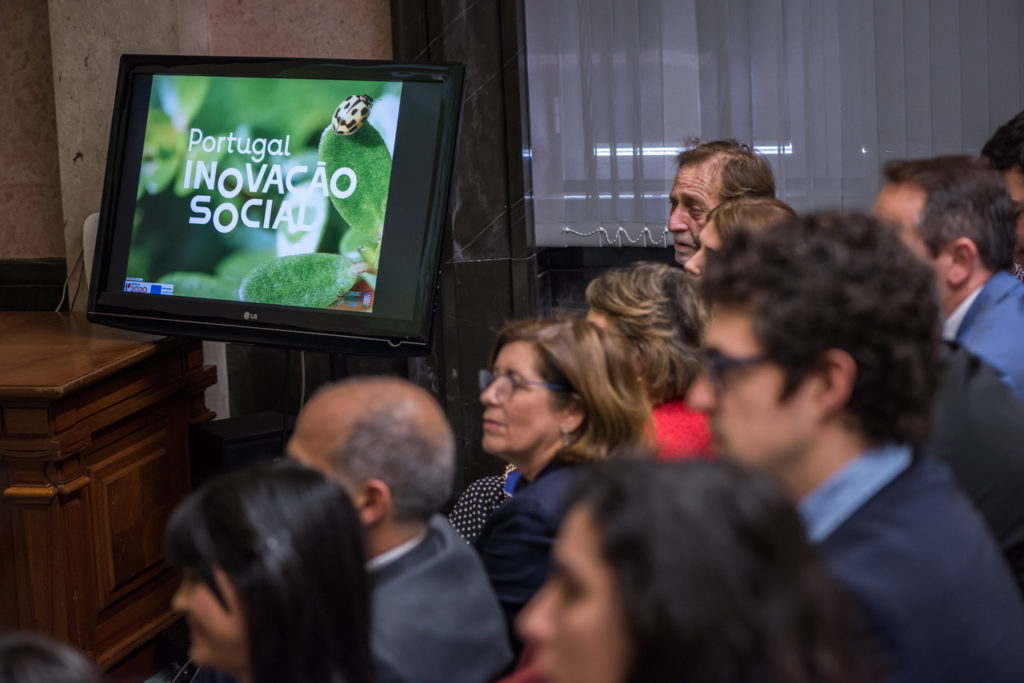
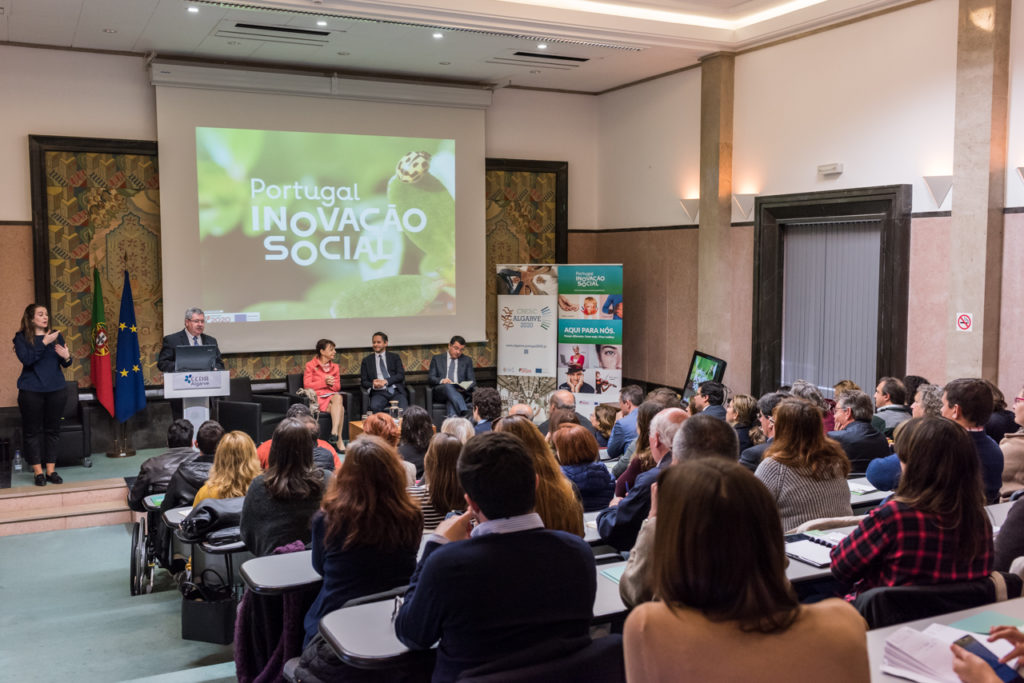
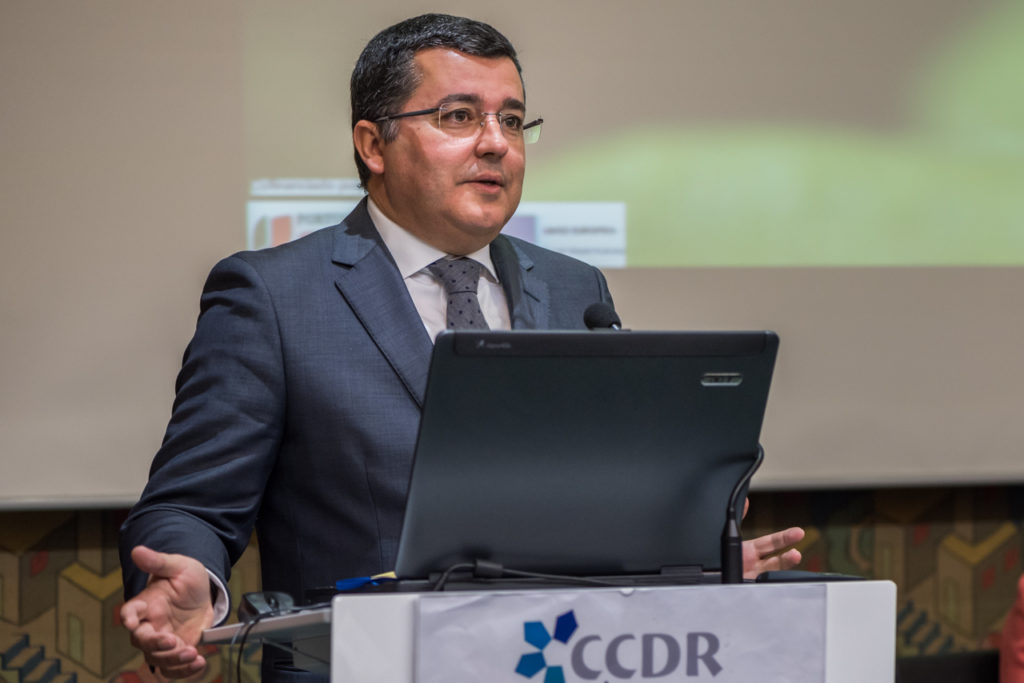
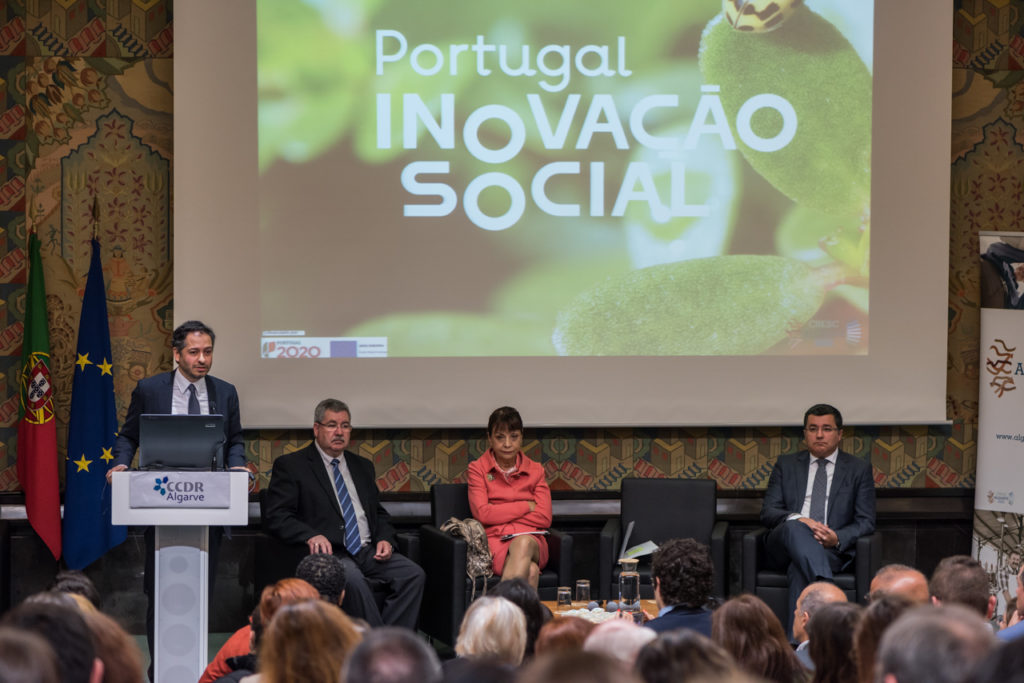
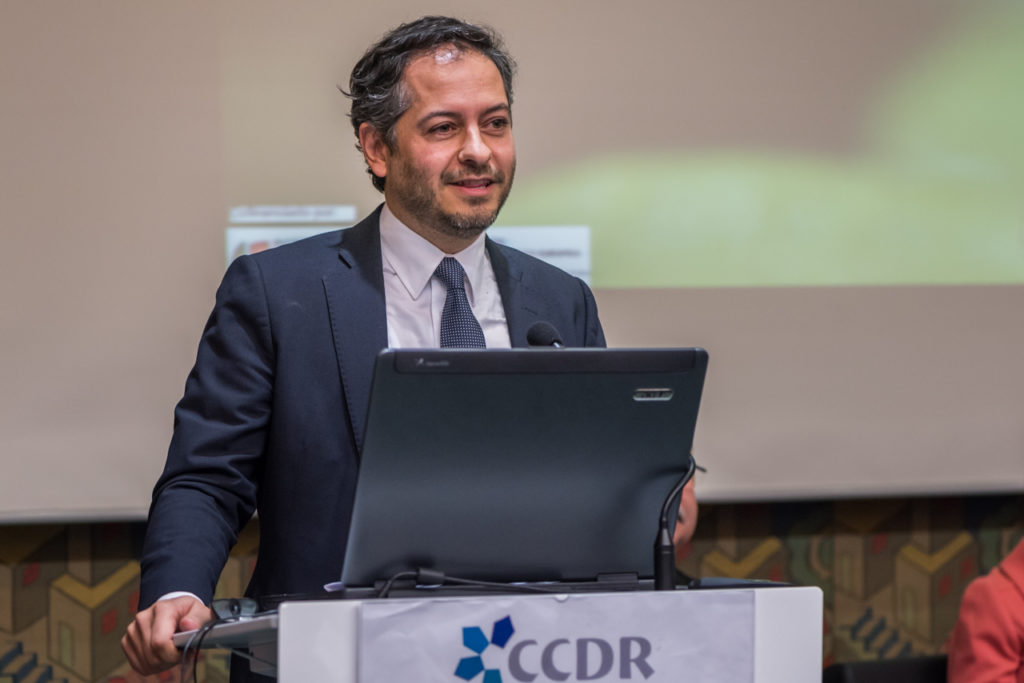
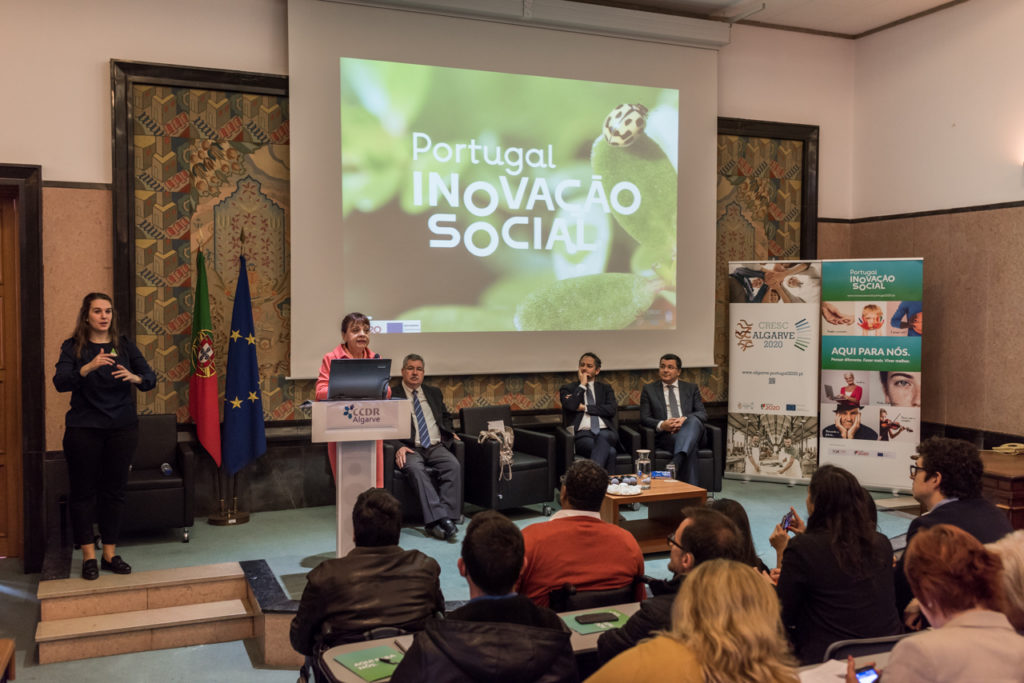
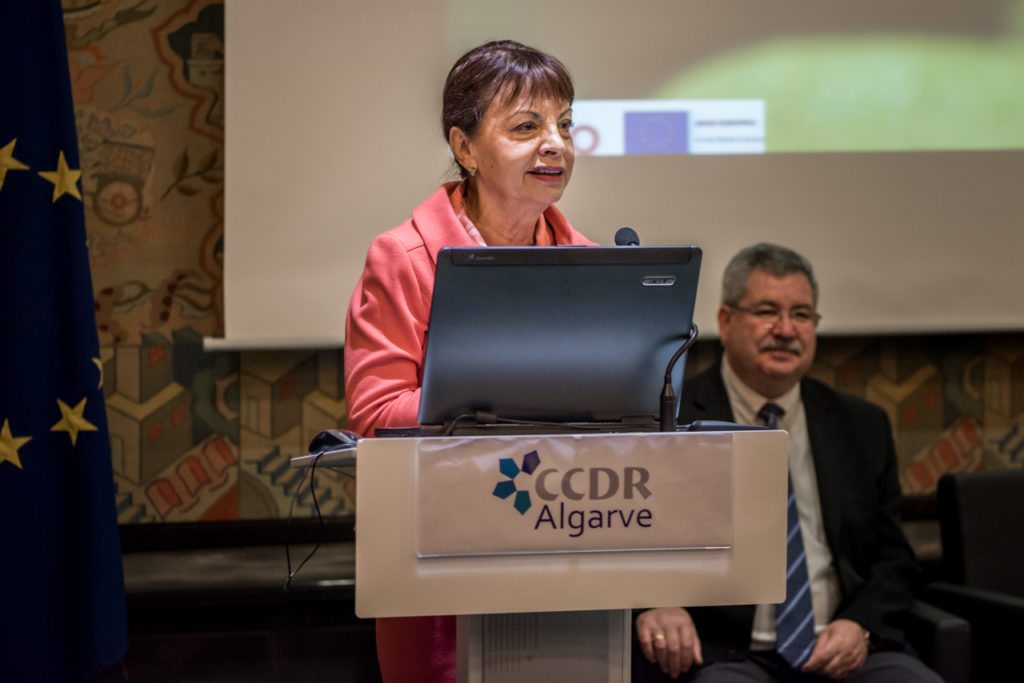
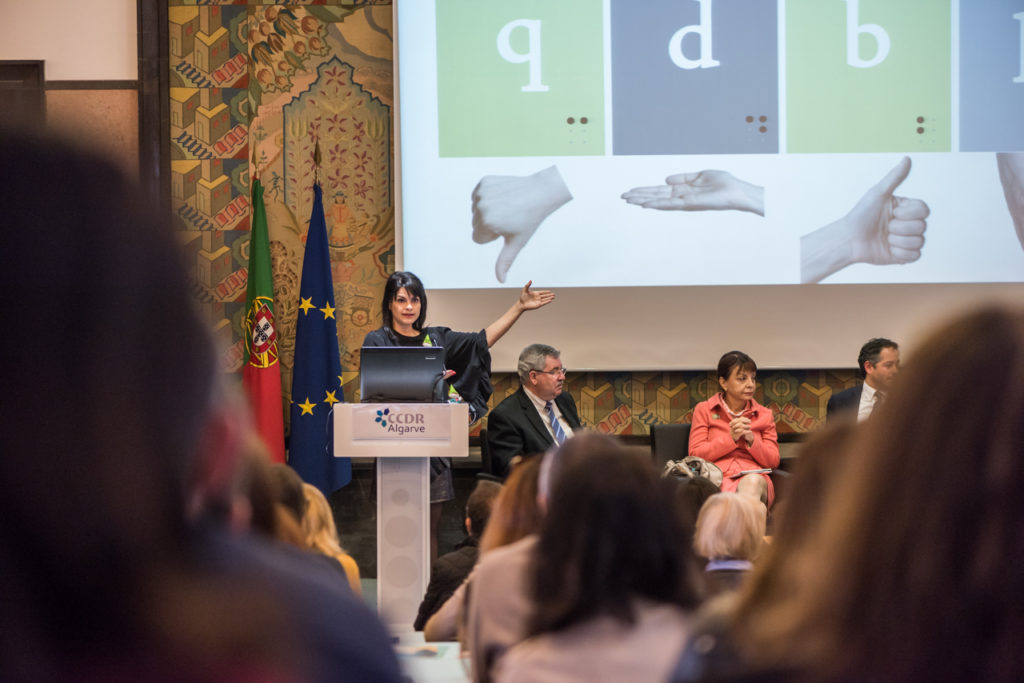
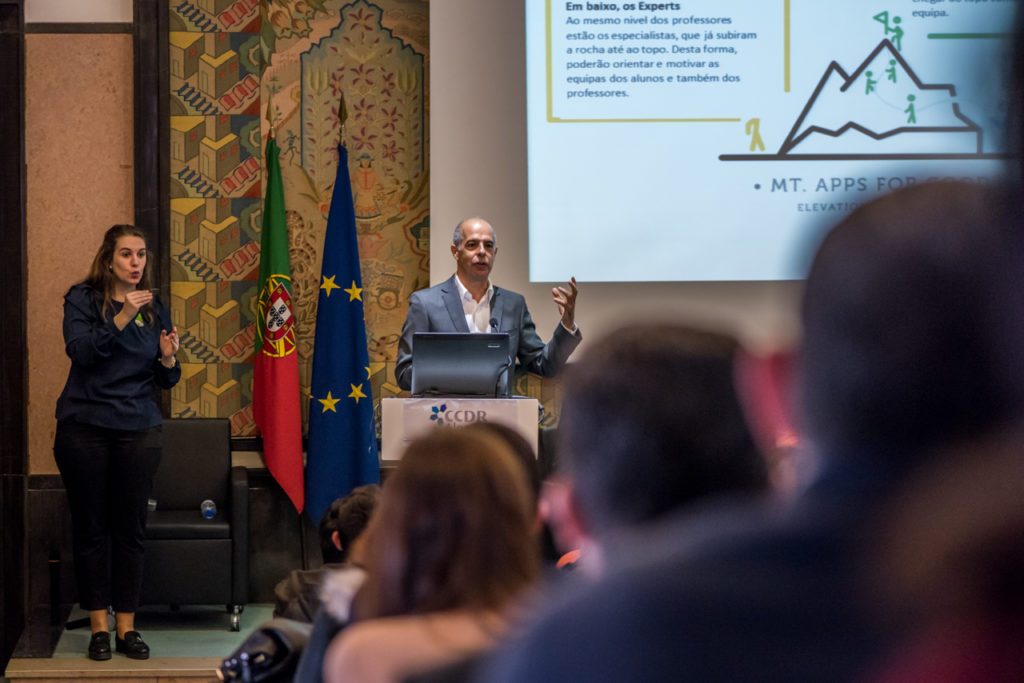
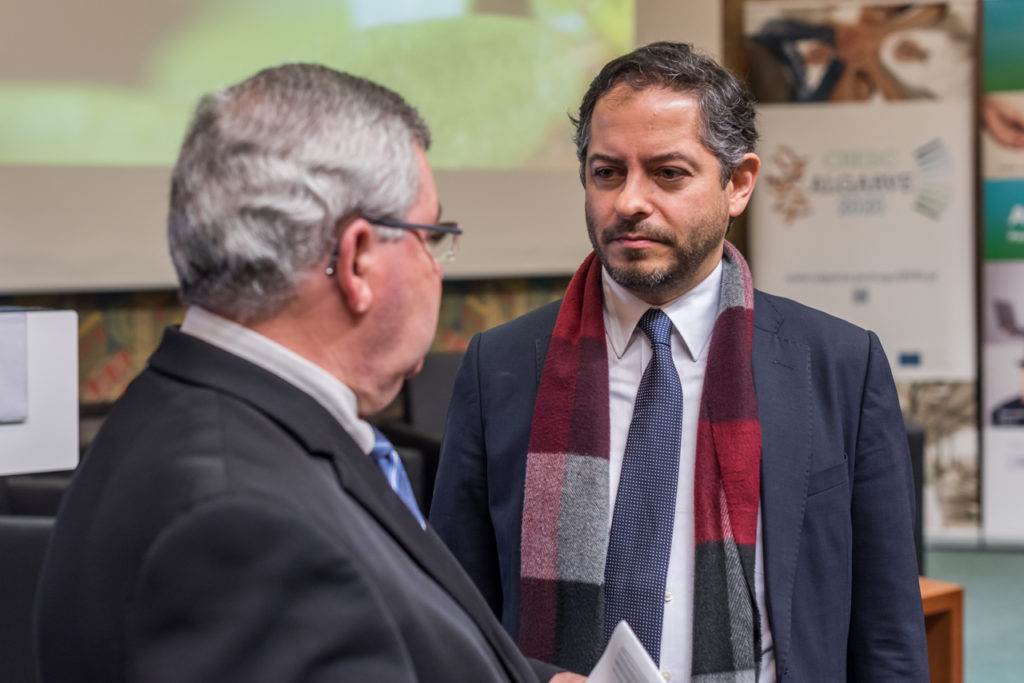
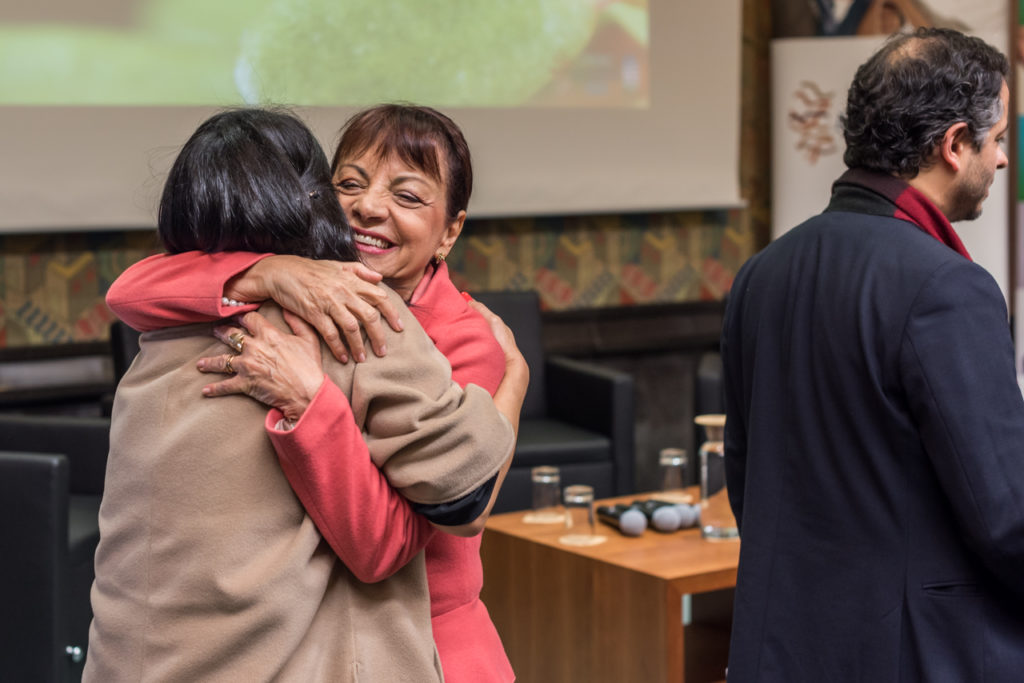
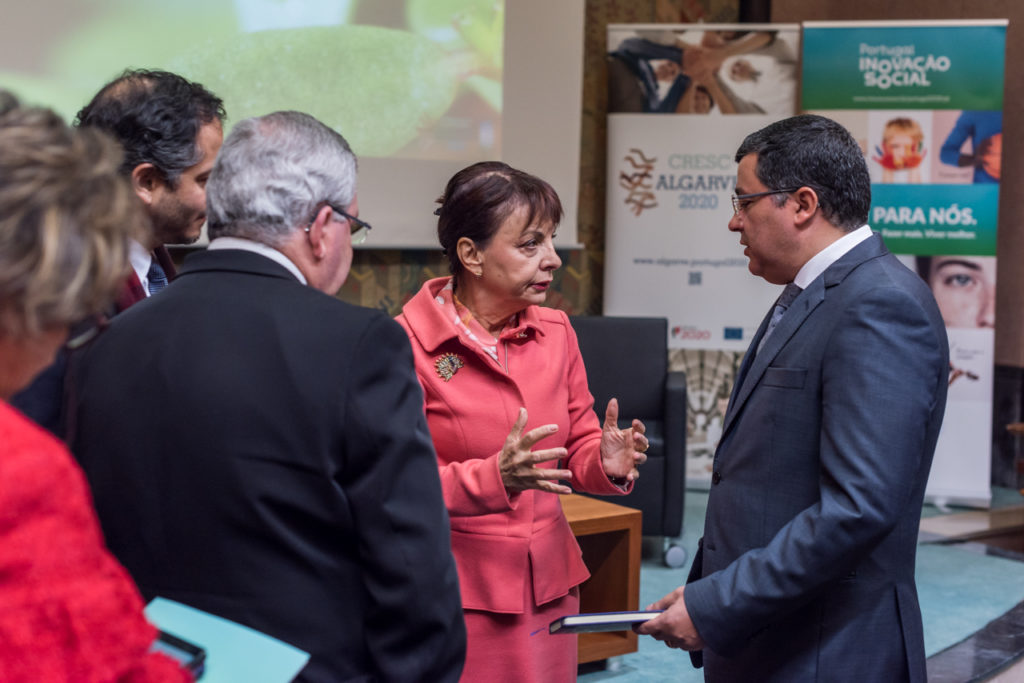
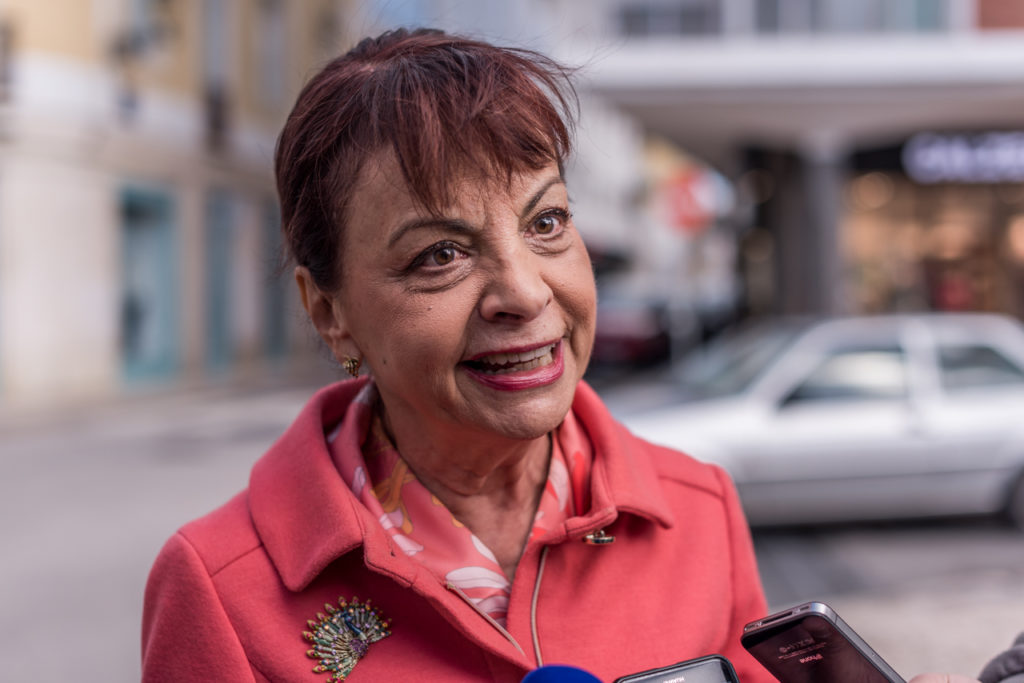
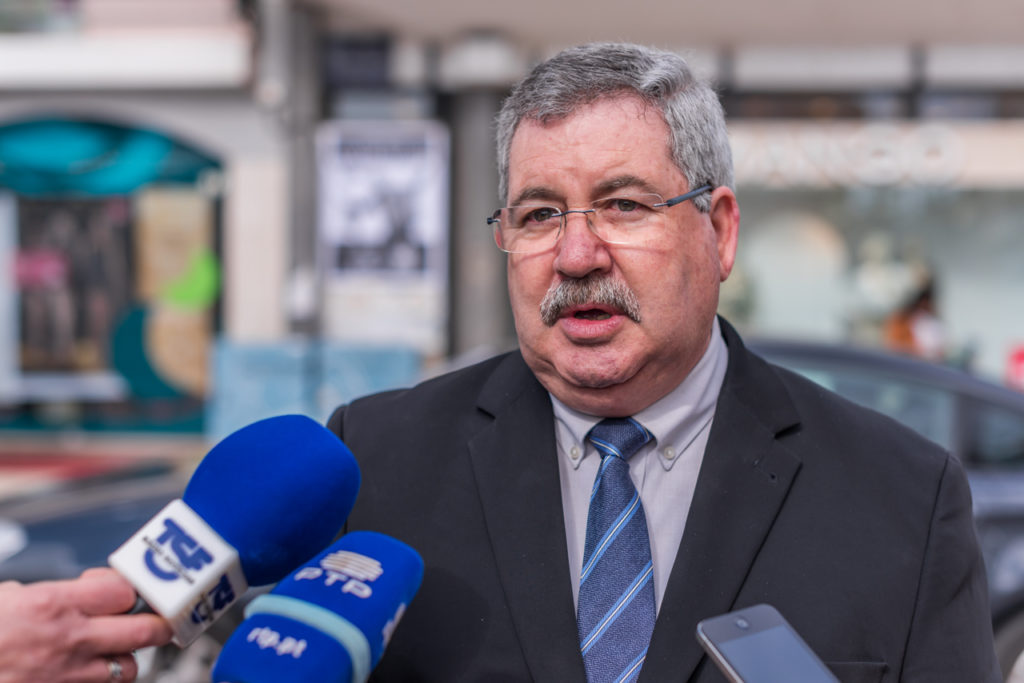


















Comments